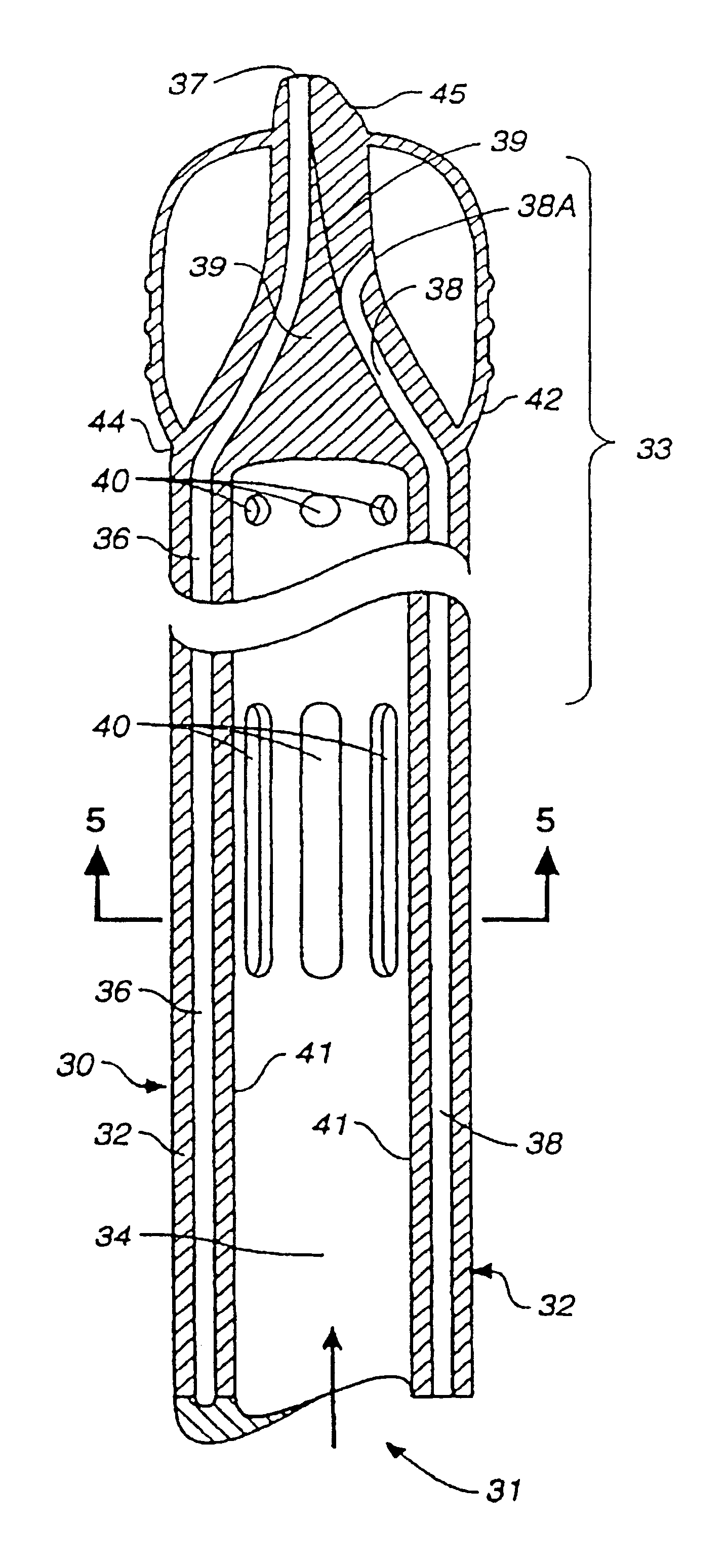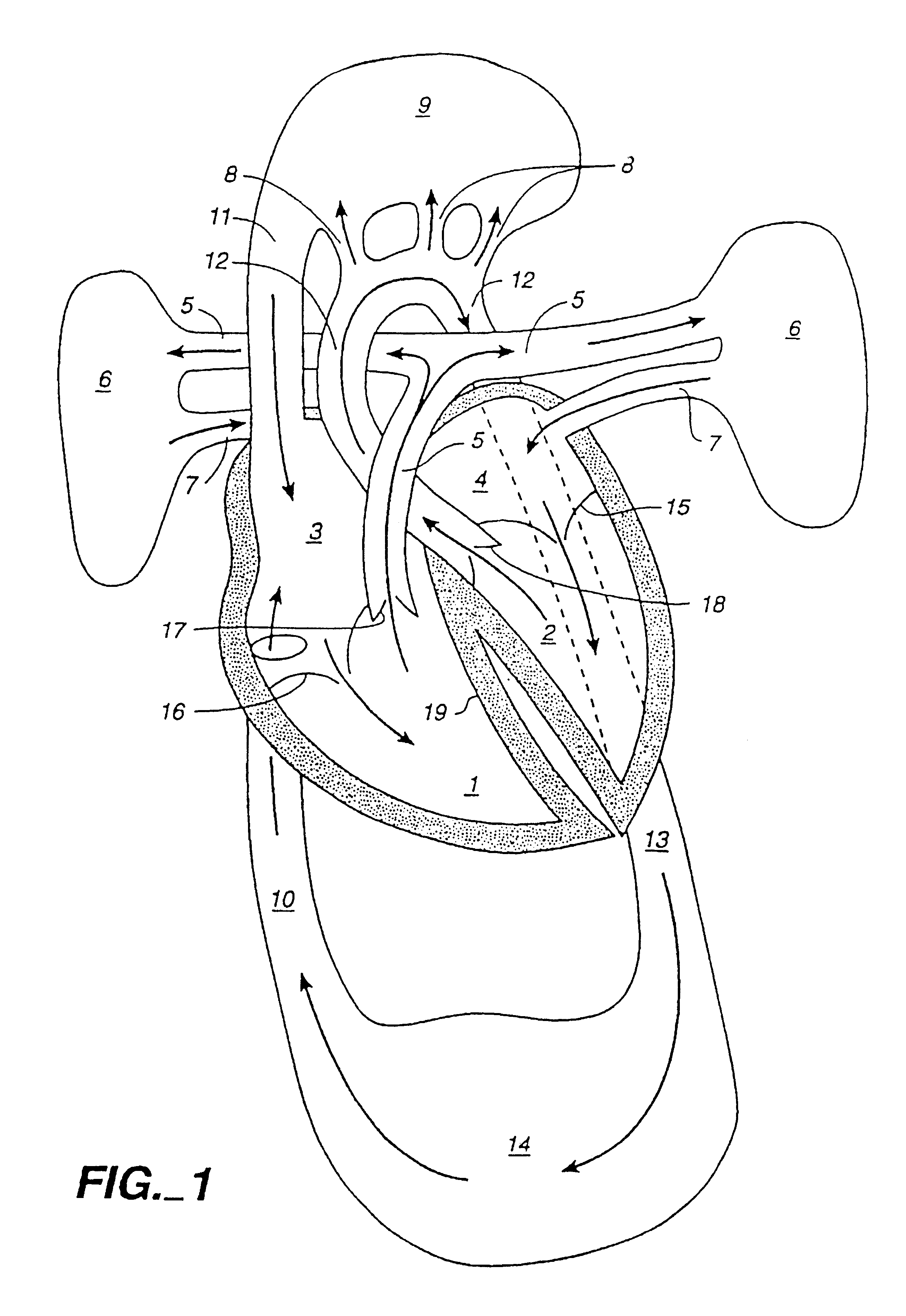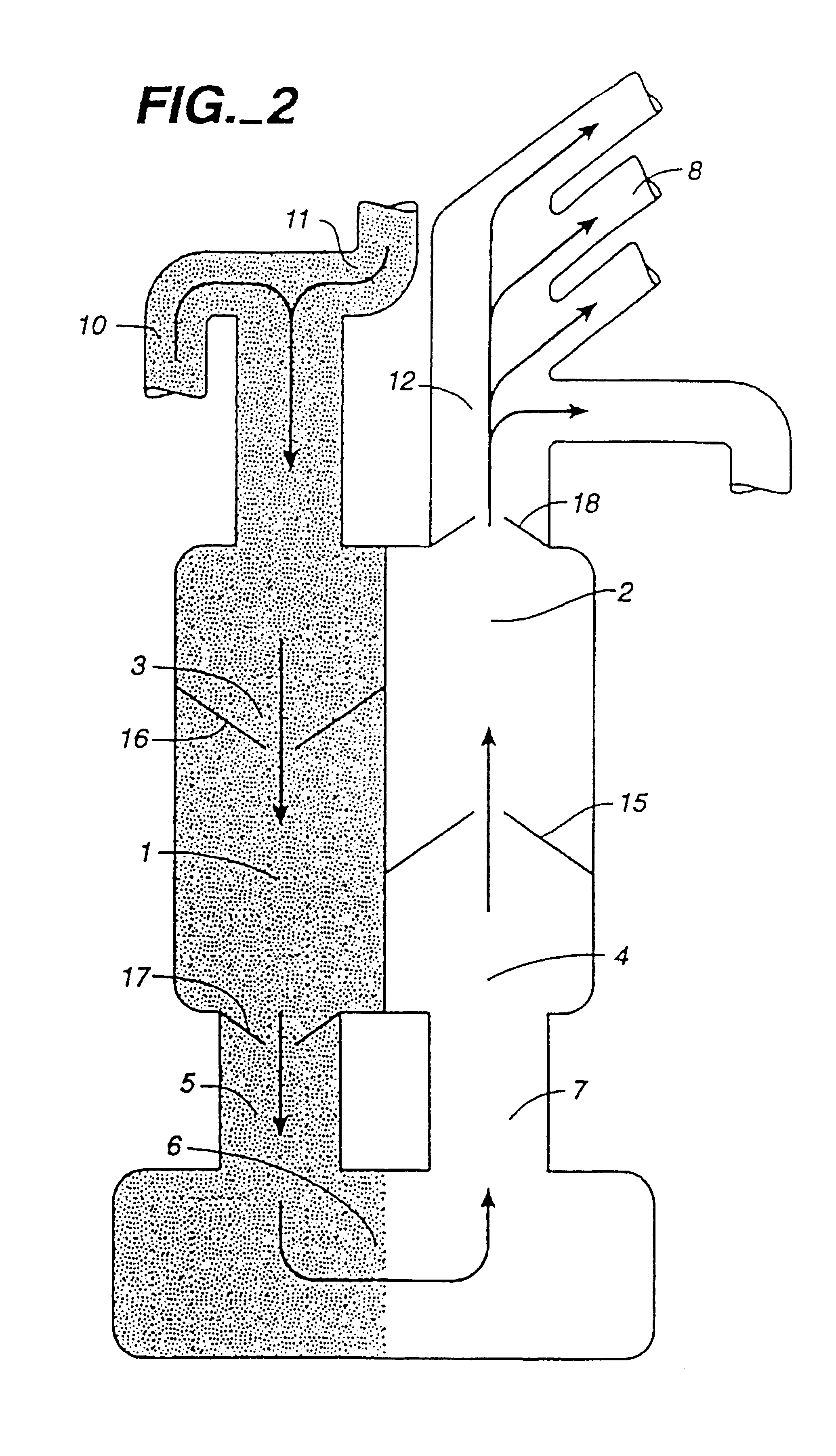Multichannel catheter
a multi-channel catheter and catheter technology, applied in the field of multi-channel catheters, can solve the problems of not teaching the importance of the large volume of the blood-carrying catheter, the catheter is not designed, and the blood cannot be adequately circulated to the rest of the body, so as to maximize the rate of blood flow, minimize the outside diameter of the catheter, and efficiently deliver oxygenation
- Summary
- Abstract
- Description
- Claims
- Application Information
AI Technical Summary
Benefits of technology
Problems solved by technology
Method used
Image
Examples
example 1
This Example shows the importance of the second and third channels, i.e., smaller channels 36 and 38 in the Figures, in the multichannel catheter bearing integrated into the wall of the larger channel and the importance of a significant outflow capacity in the outlet ports to minimize the pressure drop as the flow rate increases through the large channel.
In this test 3 / 8" inside diameter PVC tubing was used as a channel for standard saline solution. The flow rate through the various tubes was varied from 0.5 to 6 liters per minute. The saline was pumped from a first canister to a second using a roller pump. Tubes 1-6 having slightly different designs were used in the test as follows:
Tube #1: This had two tubes of a much smaller outside diameter, i.e., about 1 / 8" and about 1 / 32") within the length of large passageway that were not integrate dinto the wall of the 3 / 8" tube. It had 3 circular outlets of about 2 mm diameter at its distal end adjacent the balloon.
Tube #2: This was simila...
PUM
 Login to View More
Login to View More Abstract
Description
Claims
Application Information
 Login to View More
Login to View More - R&D
- Intellectual Property
- Life Sciences
- Materials
- Tech Scout
- Unparalleled Data Quality
- Higher Quality Content
- 60% Fewer Hallucinations
Browse by: Latest US Patents, China's latest patents, Technical Efficacy Thesaurus, Application Domain, Technology Topic, Popular Technical Reports.
© 2025 PatSnap. All rights reserved.Legal|Privacy policy|Modern Slavery Act Transparency Statement|Sitemap|About US| Contact US: help@patsnap.com



